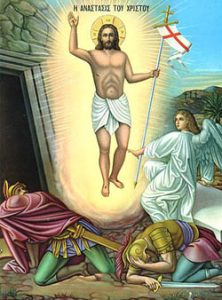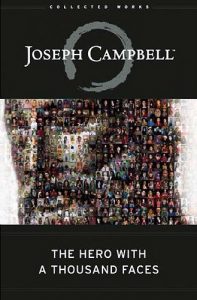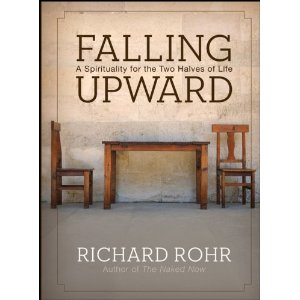 By Scott T. Allison
By Scott T. Allison
Every Easter season, about three billion Christians around the world celebrate the resurrection of Jesus. In an earlier blog post, we discussed the heroism of Jesus and the significance of his life, death, and resurrection. For Christians, resurrection signifies the immense power of God, and it validates who Jesus claimed to be, namely, the son of God.
But there is more.
According to many scholars, including Joseph Campbell and Richard Rohr, the rise, suffering and resurrection of Jesus are all significant because they model the human journey of growth, setback, and heroic transformation. I use the word “model” deliberately. We’re all destined to rise, fall, and become resurrected. Jesus showed us that our lives are all about — or should be about — transformation.
The life of Jesus is a blueprint for all human life. You don’t have to be a Christian to appreciate the significance of Jesus’ life and death.
For now, let’s focus on transformation, which I believe is the centerpiece of the hero’s journey. All good heroes in storytelling undergo a transformation that forever changes them morally, emotionally, mentally, physically, and/or spiritually. My friend and colleague Greg Smith and I talk about the significance of these types of transformations in our 2015 book, Reel Heroes & Villains.
There is no more dramatic transformation than  the one undergone by Jesus of Nazareth. His life followed the classic pattern in hero storytelling. Denied proper shelter and born in a manger, Jesus overcame poverty to grow into the wisest spiritual leader of his time – a remarkable transformation. This transformative rise of the hero represents the first part of the heroic arc.
the one undergone by Jesus of Nazareth. His life followed the classic pattern in hero storytelling. Denied proper shelter and born in a manger, Jesus overcame poverty to grow into the wisest spiritual leader of his time – a remarkable transformation. This transformative rise of the hero represents the first part of the heroic arc.
As with all heroes, his ascendancy had to come to an end. Jesus was arrested for threatening the established order, and he was tortured and brutally murdered. This tragic fall of the hero is part two of the classic heroic arc.
The third act in the heroic journey is the hero’s rising from the ashes of defeat. As Joseph Campbell wrote, “The crucifixion is not a calamity if it leads to new life.” The resurrection was a dramatic physical and spiritual transformation that not only represented the transcendence of Jesus – it transformed all of Western civilization for two millennia and beyond.
More from Campbell: “Through Christ’s crucifixion we were unshelled, which enabled us to  be born to resurrection. The imitation of Christ, then, is participating in the suffering and joys of the world, all the while seeing through them the radiance of the divine presence.”
be born to resurrection. The imitation of Christ, then, is participating in the suffering and joys of the world, all the while seeing through them the radiance of the divine presence.”
And from Richard Rohr: “Jesus is actually naming and revealing what is happening everywhere and all the time in God. Jesus’ resurrection is a statement about how reality works: always moving toward resurrection.”
Resurrection, then, is transcendence. For Christians, it can also be likened to other phenomena of spiritual change, including conversion and salvation. Hindus call dramatic growth of this type enlightenment, and Buddhists call it bodhicitta. Twelve step programs call it an awakening. The Greeks called it metamorphosis. Psychologists like myself label it plain old development.
But development is clearly an understatement. Transformation is a complete change in form, not unlike a caterpillar transforming into a butterfly. The resurrection of Jesus is the most dramatic form of transformation possible, at personal level and at the level of an entire society or culture.
a butterfly. The resurrection of Jesus is the most dramatic form of transformation possible, at personal level and at the level of an entire society or culture.
The pattern in Jesus’ life, and in our own lives, is clear. We move from order to disorder to reorder. And psychologists who study post-traumatic growth will tell you that the final reorder is a more beautiful place to be than the original order.
Transformation gives us hope that no matter how dire our circumstances, we can be redeemed. Hero stories move us all because they call us all. This Easter season, we can pay attention to the story of resurrection and thereby learn much about the hero’s journey that awaits each of us.
– – – – – – – – – – – – – – – – – – –
Bibliography
Allison, Scott, and Goethals, George. (2017). The hero’s transformation.
Allison, Scott, and Smith, Greg. (2015). Reel Heroes & Villains.
Campbell, Joseph. (1995). Reflections on the Art of Living.
Rohr, Richard. (2011). Falling Upward.